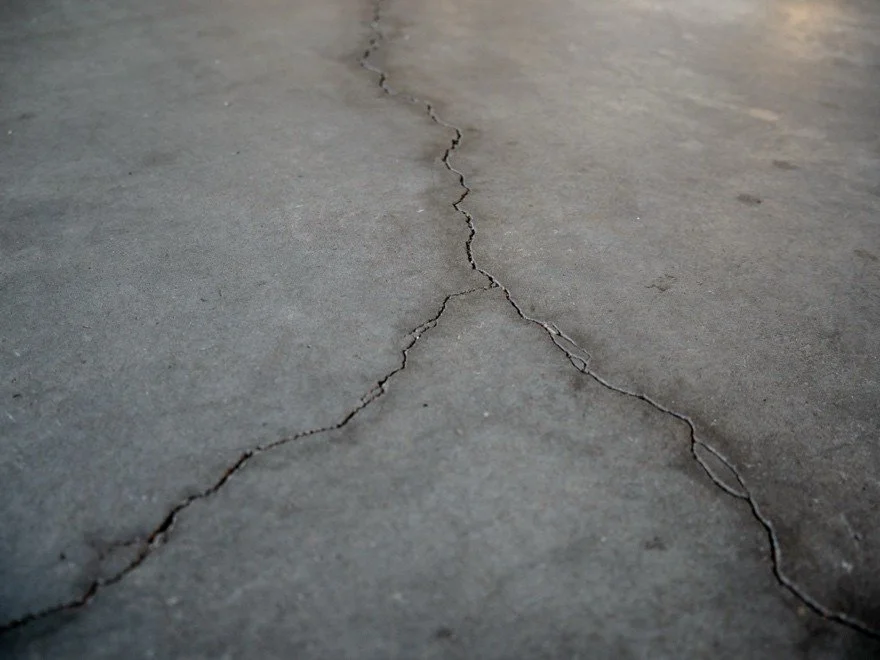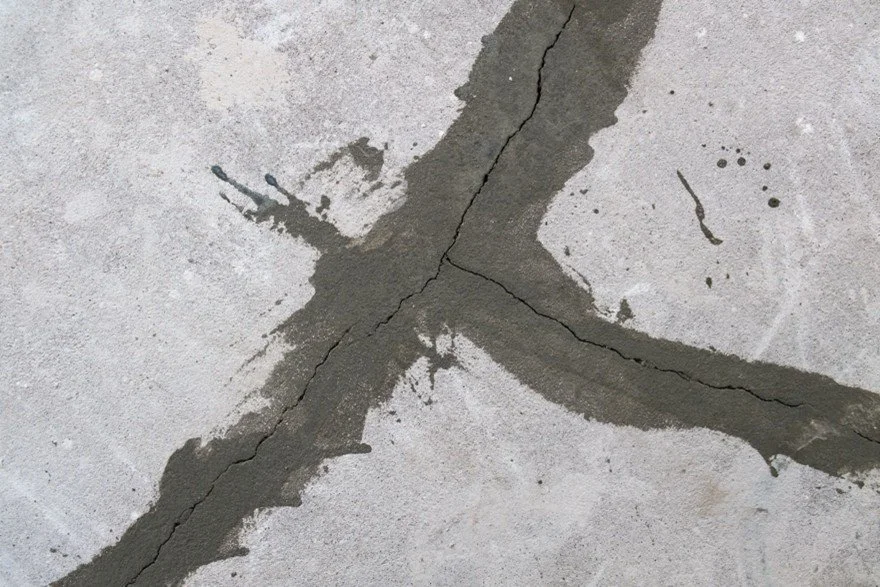When I’m performing home inspections and asked by clients about concrete garage floor cracks, one of my favorite replies is, “Here in Minnesota, there are two kinds of concrete: the kind that’s cracked and the kind that is going to crack!”
Common type of crack in a concrete garage floor
A concrete garage floor is a vital part of a home's infrastructure, offering a sturdy surface for parking vehicles, storing equipment, and enabling various activities. However, despite its strength and durability, concrete can develop cracks over time. The professional home inspectors at HomePro Inspections provide valuable information to help you understand the reasons behind these cracks and how to prevent them, which is crucial for maintaining a safe and functional garage space.
Common Causes of Concrete Garage Floor Cracks
Shrinkage
As concrete cures, it loses moisture and contracts, which creates internal stress that can lead to cracks. Proper curing techniques, such as maintaining adequate moisture levels, can help mitigate cracking due to shrinkage.
Temperature Changes
Concrete responds to temperature fluctuations by expanding and contracting. These movements can cause cracks, particularly with rapid temperature changes. Utilizing expansion joints in the garage floor can accommodate these movements and lessen the likelihood of cracking.
Settlement
Settlement cracks occur when the ground beneath the concrete shifts or settles unevenly. Ensuring that the garage floor is built on a stable and well-compacted base can prevent cracking related to settlement.
Overloading
Excessive weight from heavy vehicles, machinery, or stored items can exert pressure beyond the floor's capacity, leading to cracks. Distributing weight evenly and avoiding overloading the garage floor can help prevent this type of damage.
Improper Installation
Poor installation practices, such as incorrect mixing, inadequate reinforcement, or insufficient curing time, can lead to a weak concrete structure that is prone to cracking. Hiring experienced professionals and following best installation practices can ensure a robust and durable garage floor.
Preventive Measures for Concrete Garage Floor Cracks
Proper Curing
Implementing proper curing techniques, such as maintaining moisture levels and using curing compounds, can significantly reduce the risk of shrinkage cracks. Allowing the concrete to cure gradually ensures a stable and crack-resistant floor.
Use of Reinforcement
Incorporating reinforcement materials such as steel rebar or wire mesh into the concrete mix increases its strength and flexibility, decreasing the chances of cracking.
Expansion Joints
Installing expansion joints at regular intervals enables the concrete to expand and contract without causing cracks. These joints serve as buffers, accommodating temperature-induced movements and preventing stress buildup.
Stable Base Preparation
Preparing a stable and well-compacted base before pouring concrete is crucial for preventing settlement cracks. Ensuring that the ground is properly graded and compacted establishes a solid foundation for the garage floor.
Monitor Load Limits
Being aware of the weight limits of your garage floor can help prevent cracks related to overloading. Distribute heavy loads evenly and avoid placing overly heavy items on the floor.
Addressing Existing Cracks
Fillers and Sealants:
For minor cracks, using fillers or sealants repairs and prevents further damage effectively. These materials fill the cracks and create a smooth surface, stopping moisture and debris from entering. When asked how to properly repair cracking in a concrete garage floor, our home inspectors typically recommend that the client photograph the issue and take it to one of the big-box home improvement stores. A variety of products are available, and they will be able to recommend the right product.
Professional Repairs
Consulting a professional concrete contractor is recommended for larger or more severe cracks. Experts can evaluate the extent of the damage and suggest appropriate repair solutions, such as epoxy injections or concrete resurfacing.
Sealing more minor cracks in a concrete garage floor
Conclusion
Concrete garage floor cracks are a common issue faced by homeowners. However, understanding their causes and implementing preventive measures can significantly reduce their occurrence. You can maintain a durable and crack-resistant garage floor by ensuring proper installation, curing, reinforcement, and load management. Regular inspections and prompt repairs will further enhance the longevity and functionality of this essential part of your home. Keep your garage floor in top condition by following these guidelines and addressing any issues as they arise.
At HomePro Inspections, our home inspectors are skilled at evaluating the condition of the garage floor and identifying any defects. Any issues found are documented in your home inspection report and recommended for resolution by a qualified professional.
Visit our website to learn more or to schedule your home inspection in the Rochester, Owatonna, and Faribault, MN areas. You can also contact us today at (507) 202-8942, by email, or use our online “Schedule Now” feature to schedule an appointment.


